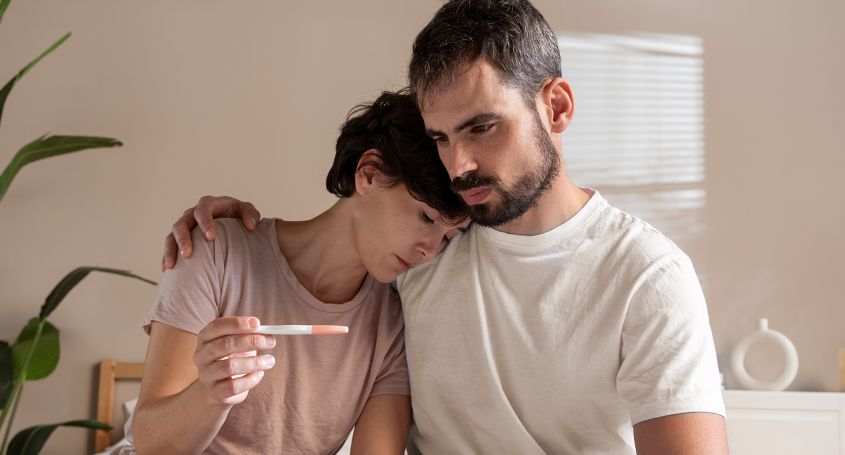The happiness following a positive pregnancy test result after undergoing fertility treatment is often cut short by a miscarriage. Miscarriage diagnoses are more common than you might think and many couples go through it before they get the baby they were hoping for.
A miscarriage does not mean that there can be problems in other pregnancies, and most unsuccessful pregnancies are followed by successful pregnancies that result in healthy children. Here are some tips for emotional support in dealing with these particularly difficult situations.
What is an abortion?
An abortion is the termination of a pregnancy before the 22nd week. When the miscarriage is repeated more than three times, we speak of repeated miscarriages, and if it occurs after this period, we speak of premature birth.
The time of greatest risk of miscarriage is during the first trimester of pregnancy, as it is during this phase that most of the embryo's organs are formed. Once 12 weeks of pregnancy have been reached and correct development is confirmed by ultrasound, the chances of miscarriage are significantly reduced.
How is a miscarriage detected?
The diagnosis can be made after detecting bleeding or it can be a chance finding during a routine examination.
The most common symptom of miscarriage is metrorrhagia, which is the loss of blood through the vagina. Not all metrorrhagia will result in miscarriage, but it will always be a risky situation for the pregnancy that needs to be considered.
On other occasions the miscarriage does not present any symptoms and is diagnosed during a routine ultrasound examination in which it is detected that the embryo has interrupted its correct development and no heartbeat is observed.
What is the treatment after an abortion?
In any type of miscarriage, the treatment is the expulsion of the ovarian remains. In many cases, and especially in the earliest cases, this expulsion usually occurs spontaneously. In other cases, it will be necessary to carry out a small operation to aspirate the contents inside the uterus, which is called curettage.
How do you get over a miscarriage?
The loss of a future child, even if the pregnancy has been interrupted after only a few weeks, always produces great sadness, which is aggravated especially in women by the sudden hormonal changes that occur in the body.
Coping with sadness, anger and helplessness in the face of a miscarriage after a long search is not easy for a couple and can become a problem if not overcome. That's why we look at some tips for emotional help in overcoming a miscarriage:
- Time to recover. Abortion is a mourning process that has its phases and it is necessary to go through each one of them. Recovery takes time.
- Seek support from those around you. Although generally in situations of sadness we may prefer to be alone, recovery is always better with the support of a partner, family and friends.
- Seek psychological support. If you are unable to overcome the situation, consulting a psychologist with experience in these matters can be of great help in understanding and dealing with the loss. At Barcelona IVF we have a psychology service with specialists trained to deal with these cases.
- Taking care of yourself: it is a tough situation, but that doesn't mean you have to stop eating or sleeping. Keeping your body and mind healthy is essential.
Looking for a new baby as soon as possible or waiting?
A woman's body recovers from the miscarriage in about one to two months, depending on how long she has been pregnant up to the time of the miscarriage. However, the emotional recovery is often longer and more costly and should be taken into account when looking for another baby.
A pregnancy that is too early, with the hormonal changes involved, can cause a lot of anxiety. It can also happen that, after a miscarriage, some couples think that what happened is their fault, that they will not be able to have any more children and panic at the thought of trying again. In any case, it is necessary to rest and recover emotionally.
Most women who have had a miscarriage do not have problems getting pregnant again and do not need specific treatments to be able to give birth to healthy children in the future.




















